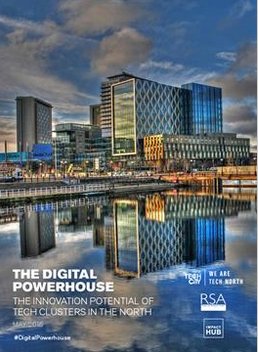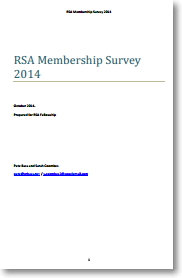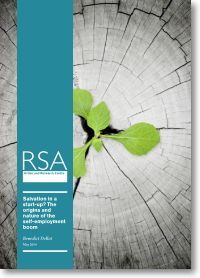The great Northern Powerhouse concept has it’s detractors, as well as those who warmly embrace vast spendiing on infrastructure projects betwixt North and South. The whole designed to energise a swathe of our country, and its economic and social infrastructure, at a stroke.
Larry Elliot, writing recently in The Guardian, declares that the Centre for Cities think tank has the right view and that George Osborne is wrong. Namely that investment is needed in cities and conurbations ‘North of Watford’ in order to achieve the right mix of enterprise, social energy and innovation.
In his article Elliot looks at the productivity and infrastructure links between several Randstadt and Rhine-Ruhr cities. Already much more productive than similar cities in the North of England, he argues, the real difference is that investment has been made in the cities, not between them.
Whether transport, high speed internet or enterprise culture are stimulated, the key difference on the Ruhr/Randstat axis is the level of skills available to feed growth in research, output and market identification, he argues.
A new RSA report argues ‘… for a departure from the usual way of ‘doing tech’, where digital businesses operate in siloes, often untethered from the places in which they operate. It is within the North’s gift to forge a different path…’

It is this focus on the sub-region, on the drivers of city based innovation, that when aggregated as evidence creates a new paradigm of achievement for the wider region. The sweeping gesture, the Osborneian grand statement, is proven only by examining the microeconomic context of the city regions as an ensemble, we would argue.
In this new report from the RSA (.pdf), Benedict Dellot et al approach the North of England with this city hinterland and regional sectoral analysis in mind.
The new work, Digital Powerhouse (.pdf), uses the digital economy of the north of England as both metaphor and research instance to examine and make suggestions for development. The findings are striking…
‘…the North’s digital economy is creating jobs at ten time the rate of the region’s non-digital sectors. In the last five years the productivity of the digital economy grew by 11.3%. The figure was 2.5% for the non-digital economy’. Source: Infographic, p.2 of Digital Powerhouse
The DIgital Powerhouse report makes fourteen profound recommendations to capitalise on the digital premium recognised in the North of England.
These range from the creation of a ‘Procurement Powerhouse’ social enterprise to link tech businesses with public sector procurement processes. An adjunct to this suggestion is a move to persuade public sector commissioners and buyers to declare a ‘problem based’ commissioning approach, affording opportunities for innovators and researchers in the tech sphere to be just that, innovative, in order to get a seat at the table of ‘government spend’.
Similarly Dellot et al call for a new ‘contract portal’, suggested to bring together opportunities to supply both the public and private sectors with tech innovation. Also on the supply side, the report suggests the championing of ‘tech co-operatives’ in the North. Striving to achieve critical mass and drive to market by tech innovators in the North, through closer co-operation and affiliation.
The regional recommendation aspect of the report make it easy to argue that this research could be the basis of a meta-development framework of policy and practice for any region with growing technology sectors. North or South.
As Eileen Burbidge, Chair of Tech City UK says in the report ‘…this report shines a brilliant light on all the assets and opportunities already underway which serve as a foundation for the growth of the new Digital Northern Powerhouse‘. Source: Burbidge, introduction: p.5 Digital Powerhouse
You can see a fuller RSA narrative on their web pages here. This report is freely available to all on the web.





